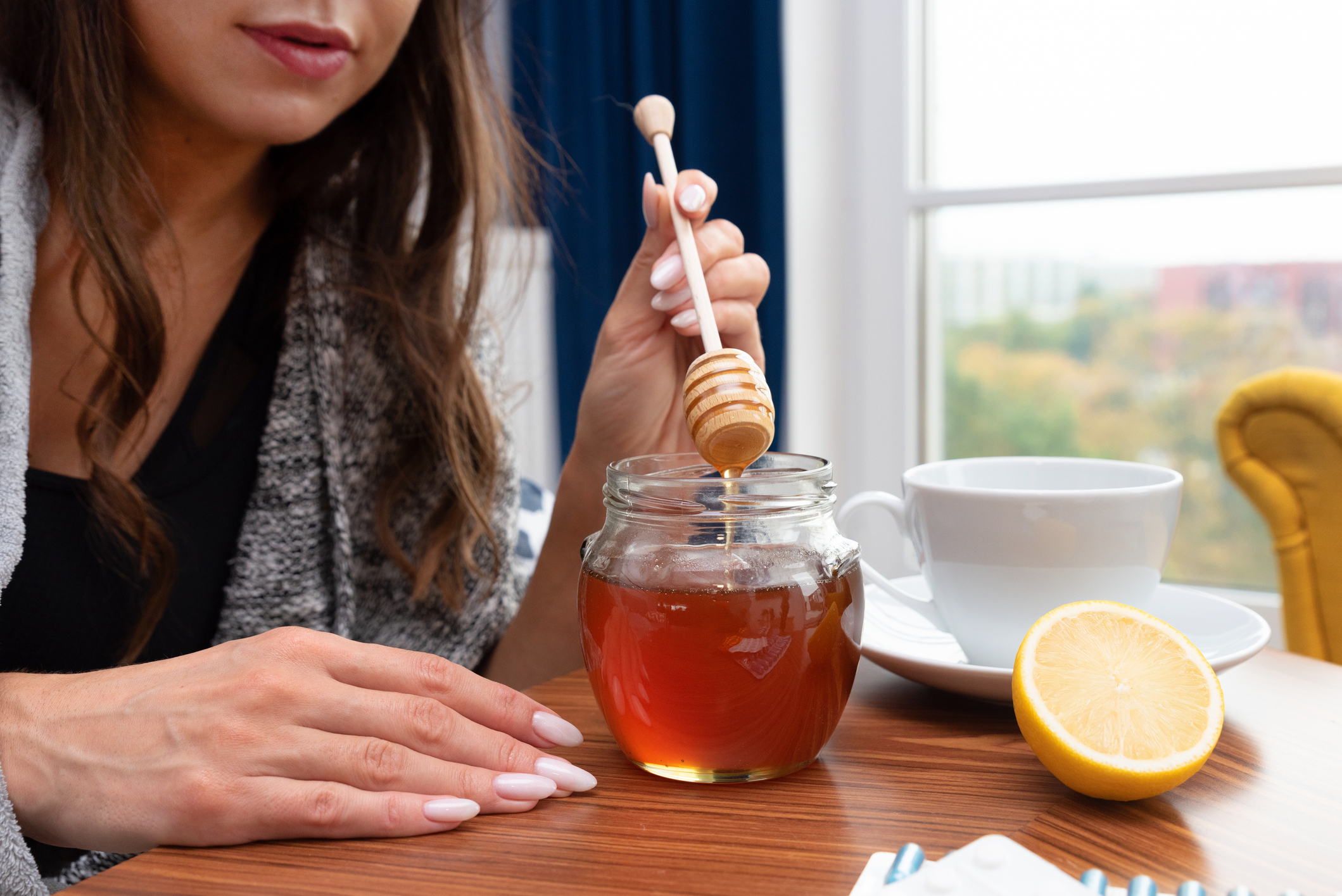

Manuka honey is made from the nectar of Manuka trees, which are native to Australia and New Zealand. But that’s not the only thing that makes it unique…
It possesses antimicrobial and antioxidant properties, in addition to rich levels of compounds like flavonoids, phytochemicals, complex carbohydrates, vitamins, amino acids and minerals.
That nutritional resume may be why several healing uses are attributed to Manuka honey related to wound healing, strep throat, gingivitis, gut health and even bladder infections.
But most compelling is that some compounds in Manuka honey have demonstrated anticancer potential at a molecular level by inhibiting pathways activated in cancer that induce tumor cell proliferation, growth and metastasis.
Here’s what researchers think future breast cancer treatments with Manuka honey could look like…
Improving breast cancer treatment
Endocrine-resistant (ER-positive) breast cancer is especially challenging and requires specialized treatment. Endocrine therapy is a hormone treatment that prevents hormones like estrogen and progesterone from attaching to receptors on breast cancer cells.
Tamoxifen is a commonly used drug in ER-positive breast cancer therapy but resistance to the drug is significant.
Scientists at the UCLA Health Jonsson Comprehensive Cancer Center have been interested in one of the mechanisms of action of Manuka honey that could make it an effective adjuvant in the treatment of hormone-sensitive breast cancer.
And that is its ability to block estrogen receptors.
When the scientists put Manuka up against breast cancer, both alone and in combination with tamoxifen — the results were impressive…
In preclinical experiments in mice and in ER-positive MCF-7 and triple-negative MDA-MB-231 breast cancer cell lines, which represent two of the most common types of breast cancer, the researchers found that Manuka honey:
- Significantly reduced tumor growth in ER-positive breast cancer (the most common type of breast cancer) by 84 percent without affecting normal breast cells or causing major side effects.
- Reduced levels of signaling pathways involved in tumor cell growth and survival.
- Lowered the proliferation of cancer cells but did not affect the growth of normal human cells, indicating it might target cancer cells specifically.
- Caused apoptosis (or cell death) of breast cancer cells.
- Enhanced the effectiveness of existing treatments such as tamoxifen, when used in combination.
“The findings provide hope for development of a natural, less toxic alternative to traditional chemotherapy,” said Dr. Diana Marquez-Garban, associate professor of medicine at the David Geffen School of Medicine at UCLA, and the study’s first author.
Using medicinal honey
The findings suggest that Manuka honey could potentially be developed into a natural supplement or even a standalone treatment for ER-positive breast cancer, especially for patients who experience resistance to the commonly used therapies.
“Although more research is necessary to fully understand the benefits of natural compounds in cancer therapy, this study establishes a strong foundation for further exploration in this area,” added Dr. Marquez-Garbon.
Until then, Manuka honey would make a great addition to any medicine cabinet, especially if bladder infections or urinary tract infections (UTIs) get you down.
Manuka honey has been shown to halt the growth of bacteria that cause chronic UTIs and prevent them from forming biofilms (a thin layer of bacteria that adhere to your bladder and are notoriously antibiotic-resistant.)
So if you live with the pain of chronic bladder infections (or just want to improve your bladder health), try this combination of Manuka honey, apple cider vinegar, lemon juice and hot water.